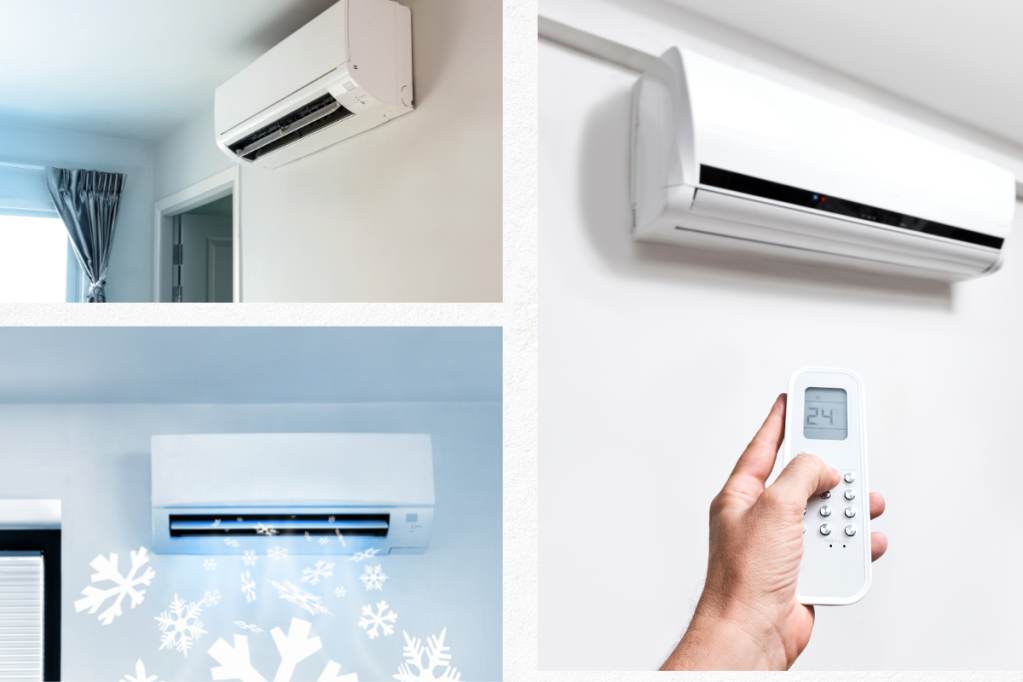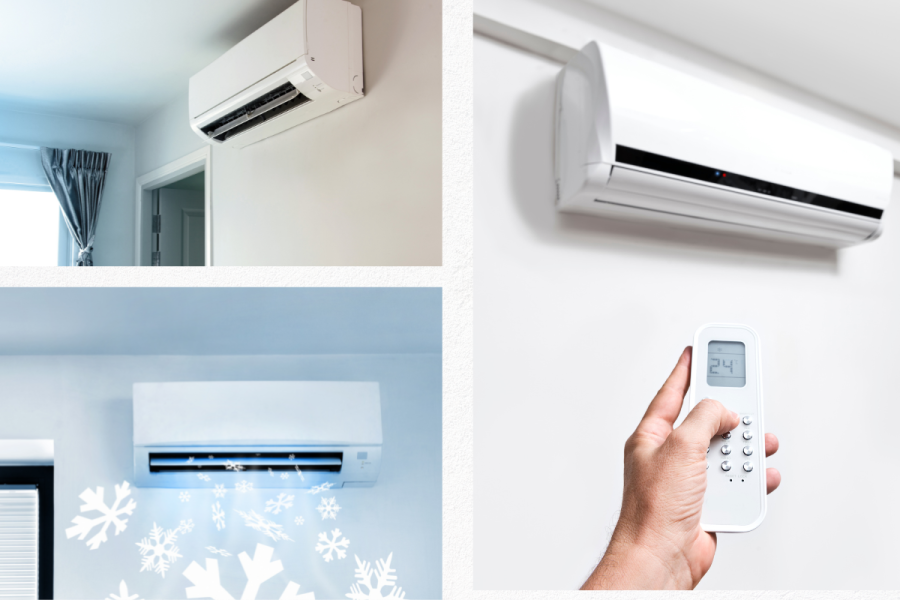
Upgrade your air game with cutting-edge climate control from Daikin or Panasonic. Perfect for those seeking unprecedented comfort and style.
Analyzing the energy efficiency of Daikin and Panasonic air conditioners
Energy-efficient Daikin and Panasonic air conditioners are great for people who want to save their energy expenditures. Inverter technology in Daikin air conditioners adjusts the compressor speed to the room’s cooling needs, saving energy. Panasonic air conditioners employ ECONAVI technology to adapt cooling settings based on occupancy, sunshine, and temperature. This sophisticated technology saves energy by efficiently using it.
It’s important to compare Daikin and Panasonic air conditioners’ energy efficiency ratings. Daikin air conditioners have an energy efficiency rating of A+++ or A++, depending on the model, while Panasonic air conditioners have the same grade. Both brands’ energy-efficient models are environmentally good because they use less power and emit less carbon.
Both Daikin and Panasonic air conditioners provide energy-saving options like sleep modes, customizable timers, and eco modes. These capabilities allow you to set the temperature according to your schedule so you don’t waste electricity cooling an empty room. If you want to save energy, Daikin or Panasonic air conditioners are good choices.
Examining the cooling performance of Daikin and Panasonic air conditioners
Daikin and Panasonic air conditioners are known for their superior cooling ability, which is essential in hot and humid conditions. Coanda airflow technology in Daikin air conditioners distributes cool air to the ceiling to maintain a consistent room temperature. This technique evenly circulates air, making the indoor environment comfortable. Panasonic air conditioners’ nanoe-G air purification technology eliminates dust, allergens, and odors from the air, making it cleaner and fresher.
Consider cooling capacity while comparing Daikin and Panasonic air conditioners. Daikin air conditioners can cool small to large rooms with their 2.5 kW to 14 kW cooling capacity. Panasonic air conditioners can chill rooms from 2.5 kW to 8 kW.
Both Daikin and Panasonic air conditioners have features that improve cooling performance, such as turbo mode, which quickly reaches the required temperature, and auto mode, which adapts cooling settings to the room’s temperature. Daikin and Panasonic air conditioners have excellent cooling performance, making them good choices for high-quality units.
Comparing the features and functionalities of Daikin and Panasonic air conditioners
Panasonic and Daikin air conditioners have several features and functions to suit diverse consumer needs. Daikin air conditioners use Intelligent Eye technology, which employs infrared sensors to detect human activity and change cooling settings. This feature saves energy and extends the air conditioner’s lifespan. Panasonic air conditioners have a Wi-Fi capability that enables consumers regulate the temperature with their cellphones or tablets.
Panasonic air conditioners have various features than Daikin ones. Daikin air conditioners provide a night-time silent mode to reduce noise for a restful night’s sleep. Panasonic air conditioners have an air purification mode that eliminates hazardous particles from the air, making the indoor environment cleaner and healthier.
These businesses provide a variety of designs and sizes to fit different consumer preferences. Panasonic air conditioners are more traditional, while Daikin air conditioners offer sleek, futuristic aesthetics. Both brands make air conditioners for homes and offices that fit modest to large rooms.
Assessing the reliability and durability of Daikin and Panasonic air conditioners
Reliability and durability are crucial when buying an air conditioner. Panasonic and Daikin make high-quality, long-lasting products. To ensure reliability and durability, Daikin air conditioners are tested in extreme temperatures and humidity. Compressors and heat exchangers that resist corrosion and wear are also included.
Panasonic air conditioners are tough and reliable. They have a sturdy casing to protect the internal components. The units also have a self-diagnosis function that alerts the user to any problems.
Panasonic and Daikin air conditioners have comprehensive warranties, proving their reliability and durability. The compressor and heat exchanger are covered by different warranties depending on the model and brand.
Evaluating the noise levels of Daikin and Panasonic air conditioners
When buying an air conditioner, customers worry about noise. Panasonic and Daikin air conditioners are quiet, ranging from 19dB to 55dB. Daikin air conditioners have a night-time quiet mode to reduce operating noise. Inverter technology in Panasonic air conditioners reduces noise by up to 10dB.
An air conditioner’s noise depends on its compressor type, fan speed, and size. Daikin and Panasonic air conditioners feature noise-reducing technologies. Daikin air conditioners use quiet scroll compressors. However, Panasonic air conditioners use an inverter compressor to match cooling needs and reduce noise.
Air conditioner placement is important for noise levels. If installed too close to a bedroom or living room, the unit can disturb the occupants. Thus, choosing an air conditioner requires considering the room’s size and layout.
Investigating the after-sales services and customer support of Daikin and Panasonic air conditioners
Customer support and after-sales services are important when buying an air conditioner. To ensure customer satisfaction, Daikin and Panasonic offer comprehensive after-sales services and customer support. Customers can get installation, maintenance, and repair services from both brands’ specialists. They also have a customer service number.
The compressor and heat exchanger are covered by Daikin’s air conditioner warranty. To keep the device running smoothly, they offer annual maintenance. Customers can also track their air conditioner’s performance and energy use with Daikin’s mobile app.
Panasonic air conditioners’ compressors and fan motors are covered by a comprehensive guarantee. To keep the unit running well, they install and maintain it. Panasonic’s customer care center can also answer questions.
Conclusion
Energy-efficient and high-performance Daikin and Panasonic air conditioners are great alternatives. Daikin’s inverter technology and Panasonic’s ECONAVI technology save energy. Its cooling capacities and features like Coanda airflow technology and nanoe-G air purification technology evenly circulate air, creating a comfortable and pleasant home atmosphere. Anybody upgrading their air conditioning system should choose one of these brands.
Daikin and Panasonic air conditioners have many features and functions to meet consumer needs. Panasonic’s Wi-Fi and Daikin’s Intelligent Eye technology are examples of these businesses’ revolutionary features. These brands also make long-lasting, reliable air conditioning units. They provide extensive guarantees to provide clients peace of mind.
Finally, Daikin and Panasonic air conditioners are quiet and provide excellent customer service. Air conditioner noise varies on compressor type, fan speed, and unit size. Both brands have advanced noise-reduction systems. To keep the equipment running smoothly, both brands offer a complete warranty and annual maintenance. Anybody searching for a reliable and efficient air conditioning system with great after-sales services and customer support should choose either of these brands.
